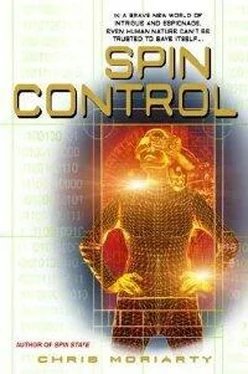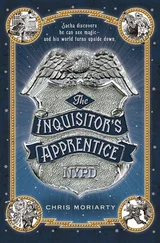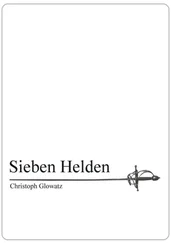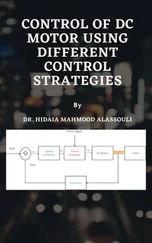“No. But you can come to my house for dinner. My daughters are here on their Yom Kippur visas, and Zillah’s always delighted to see you. And of course”—with a polite nod to Li—“the invitation is also for…?”
“Actually, we’ve met,” Li said. “At the War College on Alba. You probably don’t remember, but I took a class the semester you visited.”
“Oh dear. I should remember, of course, but I meet so many people. And my memory for faces is very poor.”
Cohen rolled his eyes and coughed.
“I’m sorry,” Didi said humbly, “it’s dusty in here. All the paper, you know. You wouldn’t believe the problems we have with allergies. Would you like to borrow my eyedrops?”
Didi’s office was material proof of the old Mossad dictum: the smaller the office, the bigger the reputation. The place must have been a mop closet in some prior incarnation. Only the timeless tools of the trade—the glass-topped desk, the paper shredder, the scrambled landline, the dusty green ranks of locked file cabinets—suggested the secrets its walls had seen.
Nor did the room give anything away about Didi himself. There were no family pictures, no knickknacks, no mementos. The only hint of personality was a fading computer printout taped to the wall behind Didi’s head, where generations of young field agents had read it while listening to briefings, waiting for Didi to get off the phone with his wife or daughters, or yawning through administrative updates. The list, which Cohen happened to know had been a present from the last class of katsas Didi took through field training, contained five items:
1. The odds of an agent ending up in a hole in the ground are directly proportional to the number of people who know him from a hole in the ground.
2. The best thing to say is always nothing.
3. When you want to know what a piece of information means, look at where it’s been.
4. Small guns are more trouble than they’re worth.
5. Everyone has his dumb blonde and his rented Ferrari.
As they passed into the office, a slender young man appeared, seemingly from nowhere, to frisk them a second time. Cohen stood patiently to be searched, as did Li; but while Li’s inspection of the boy was limited to a quick glance at all the potential hiding places for concealed weapons, Cohen’s once-over was a bit more thorough.
The boy had the parchment skin and glossy curls of a yeshiva student. His glasses were cheap, like Didi’s, and the lenses were almost thick enough to obscure the long-lashed bedroom eyes behind them. Which didn’t change by one jot the fact that the body under the rumpled suit was a soldier’s body, and the sleepy-lidded eyes looked out at the world with the calculating poise of a professional killer.
Once he’d pronounced them clean, the young man escorted them into Didi’s inner sanctum and hesitated ostentatiously.
“Thank you, Arik,” Didi said. And waited.
The boy heaved a sigh of protest over the security breach and slipped out of the room, leaving the three of them alone together.
“Good youngsters coming in these days,” Didi told Cohen. “It’s a nice thing to see kids who take their work seriously.”
“Well, you do get the pick of them.”
“You want a boy like Arik should be rotting in a foxhole? Five languages he speaks. Arabic like a native.”
No doubt he did speak five languages. He also looked like a smaller, paler, less handsome, and decidedly less good-natured copy of Gavi Shehadeh. But Cohen knew better than to suggest that this might have anything to do with Didi’s obvious affection for the boy.
Didi chatted on, mentioning mutual friends. Cohen let the small talk flow over him without too much thought—something he’d long ago learned to do when humans started talking this way—and focused on the body language. He’d wondered for a long time what Catherine Li and Didi Halevy would make of each other. Now he watched each of them summing the other up and asked himself whether these two particular opposites were about to attract or repel.
Li, three years out of the Peacekeepers, still looked so ill at ease in mufti that even the most casual observers pegged her for an off-duty soldier. Didi, by contrast, had looked like a disheveled impostor the one time Cohen had seen him in uniform. In fact, one of the often-discussed mysteries of the Mossad chief’s legendary career was the question of how a man who seemed too fragile to lift a piece of paper had survived his compulsory military service long enough for his unique talents to be recognized.
At the moment Didi was definitely in undertaker mode. If Cohen hadn’t known better, he would have thought they were talking to the janitor. Did the man have some reason for wanting Li to underestimate him, Cohen wondered, or was it just the habitual camouflage of an old spy who’d long ago learned not to trust new faces?
Li, meanwhile, had gone into her full-blown dumb-soldier act. There was no glint of humor in her dark eyes, no ironic drawl in her voice. Not one thing about her face, manner, voice, or words suggested that she’d ever had an intelligent thought in her life.
He should have expected it, Cohen told himself sourly. He’d looked forward to this meeting for years. And now here they were, both playing dumb with such consummate skill that Cohen was beginning to feel like he was the only sentient life-form in the room.
“You two,” he burst out finally, “are absolutely impossible!”
“What?” Didi and Li said at almost the same moment in voices of wounded innocence.
And then Li, having caught Cohen’s invective-riddled comment on the bad social graces of all spies and retired soldiers, laughed.
“So,” Didi said. “Now that we’re all having fun, what do you say we take a look at Catherine’s spins from Abulafia Street?”
They ran Li’s spins on Didi’s long-past-obsolete desk monitor, the three of them hunching over the small display shoulder to shoulder. It was unnerving to see the whole meeting replayed from Li’s perspective: to see the thoroughness with which she checked people over; the way her eyes flickered constantly from door to window to floor to ceiling; her almost subconscious awareness of the minute changes in the flow of traffic beyond the walls that could mean danger; the restless, constant, animal awareness of a body that had survived enough combat drops to know that bad luck can kill you at any time and from any direction.
And it was pretty obvious what pieces of bad luck she’d been alerting on back in that hotel room. First and foremost, Turner. No explanation needed there; only a fool, and a suicidal fool at that, would mess with the Americans. But her source of worry was less obvious. In fact, Cohen was embarrassed to realize that he himself had missed it entirely in real time. While he’d been glaring at Korchow and inspecting the antiques collection, Li had in fact been doing her job. And as far as she was concerned that job had mainly consisted of keeping an eye on Shaikh Yassin. Or, more precisely, on one of the hard young men hovering at Yassin’s elbow.
Li had ignored the two gorillas, obviously mere hired muscle, and reserved her vigilance for the slim young man with those pale green eyes that still popped up every now and then in the Palestinian gene pool and, a full millennium after the last crusade, were still called crusader’s eyes.
The boy had an athlete’s slouch. His body was still and relaxed, every betraying tic leached out of it by the same iron discipline that every Mossad katsa learned. His face was schooled into a calmly attentive, completely unreadable expression. And the green eyes were cold and alert and moved constantly around the room, taking in everything but never appearing to stare too hard at any one thing. The boy was Arik’s opposite number; and only a novice could fail to recognize him for the superlatively trained professional that he was.
Читать дальше












